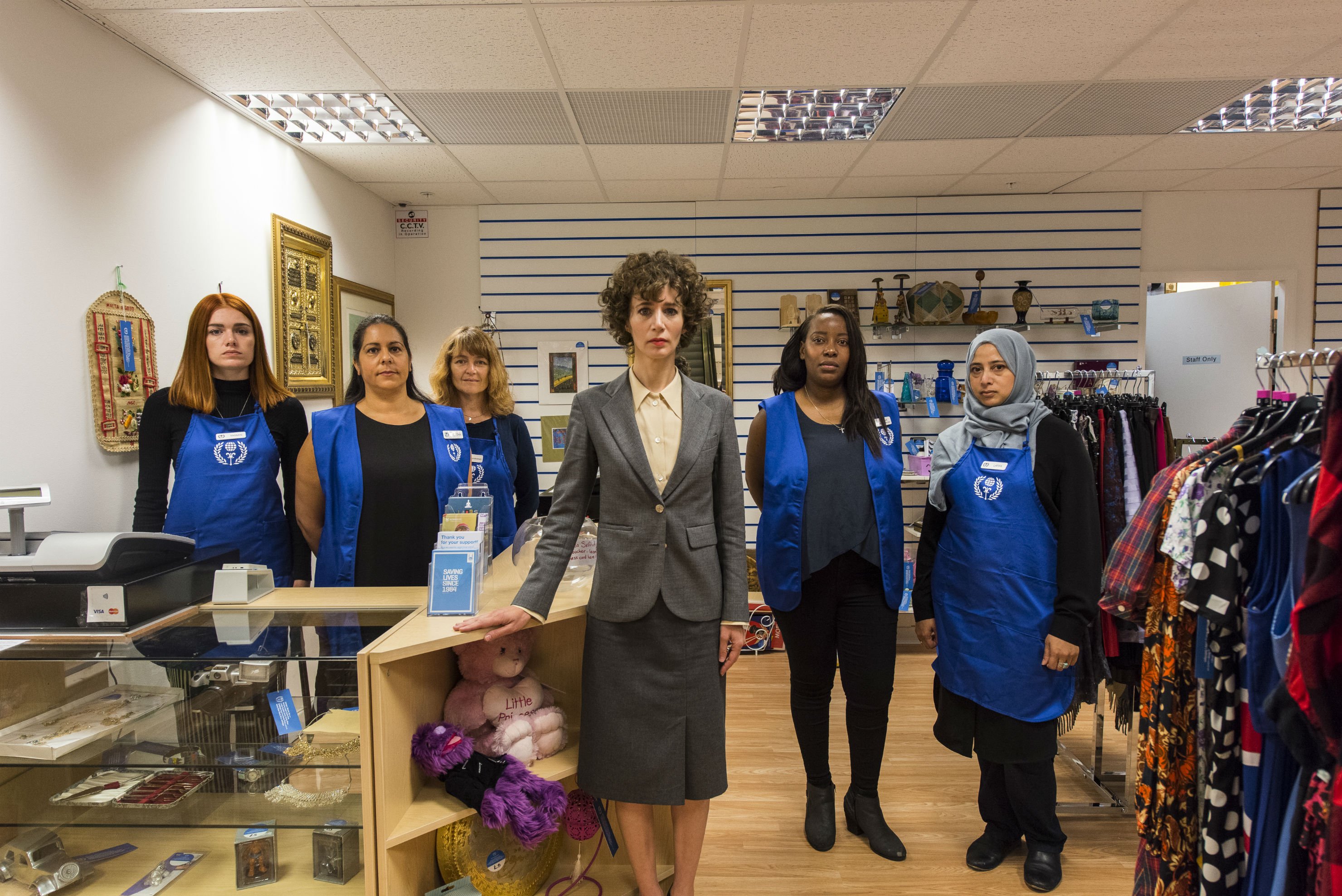
The US artist, writer, and filmmaker Miranda July says that creating a temporary interfaith thrift store in the heart of Selfridges department store on London’s Oxford Street taught her that “charity begats charity.” The shop closes on Sunday, October 22, after six busy weeks of trading.
The retail outlet is an art project commissioned by Artangel. The shop, which looks uncannily like those that line many British streets, sells second-hand clothes, bric-a-brac, and books (all by female writers). The money raised will be divided equally among the four participating charities, which are Muslim, Jewish, Christian, and Buddhist.
Selfridges gave its blessing for the project after discussions that ranged from the practical (how to keep the store fully staffed seven days a week) to the philosophical (whether it was appropriate to bring religion and politics into a temple of consumerism).
Speaking about the project last night, October 19, at Prince Charles Theatre in London, July told fellow artist Jeremy Deller that the shop generated more money each day than a typical charity shop usually raises in an entire week. Some shoppers even came bearing gifts for the staff.
July is now working on a film with the photographer Hugo Glendinning documenting how the participatory work of art became an oasis of tolerance and religious cooperation. It could be completed by Christmas. “I hope it will be ready in a couple of months,” July told artnet news.
Miranda July inside the Interfaith Charity Shop on the third floor of Selfridges, August 2017. Photograph: Hugo Glendinning © Artangel
The artist-turned-thrift-store-stylist handpicked many of the clothes and masterminded their presentation on the racks. Bargains included a Valentino jacket, which went for £30 ($40), according to one of the shop’s deputy mangers.
The artist attributes the project’s success to the British love of bargain shopping and the country’s tradition of religious tolerance—though she is fully aware that race and religious hate crime is on the rise in the UK and abroad. “I marched in with a fuck-that attitude,” she said. The shop’s signage proclaims solidarity with Islamic Relief, the Muslim charity participating in the project.
July said Islamic Relief’s UK chief executive feels he must always attend meetings with a briefcase full of independent documentation proving that the organization’s funds support those in need, not terrorists. The charity is sending emergency aid to refugees worldwide, including those fleeing persecution in Myanmar.
The artist and Artangel have discussed taking the interfaith charity shop to the US, but July hinted that fears of a negative reaction led them to put the idea on ice. In the current political climate, there is such polarization that “you make a misstep in public and you are going to suffer,” she said. Having often visited London, she knew that religious charity shops are a very British thing and that there are stores for “every faith, every suffering, every malady.”
July praised the dedication of the shop’s 20-strong workforce and the “gentle schooling” they provided her in the sensitive issues surrounding each faith.
On a lighter note, the artist confessed to some micro-management of the store via social media when she was not there in person. “I’m sneaky—I could see everything on [people’s] Instagram.” If there was “too much denim” on a mannequin in the window or the price labels looked wrong, the shop managers would soon be informed.
Nevertheless, the artist respected their expertise and experience. “There is a charity-shop language that I don’t speak,” she said, such as which tills are best. At the start of the talk, she said her first job was in the Portland, Oregon, branch of Goodwill, pausing to add, “I was fired.”